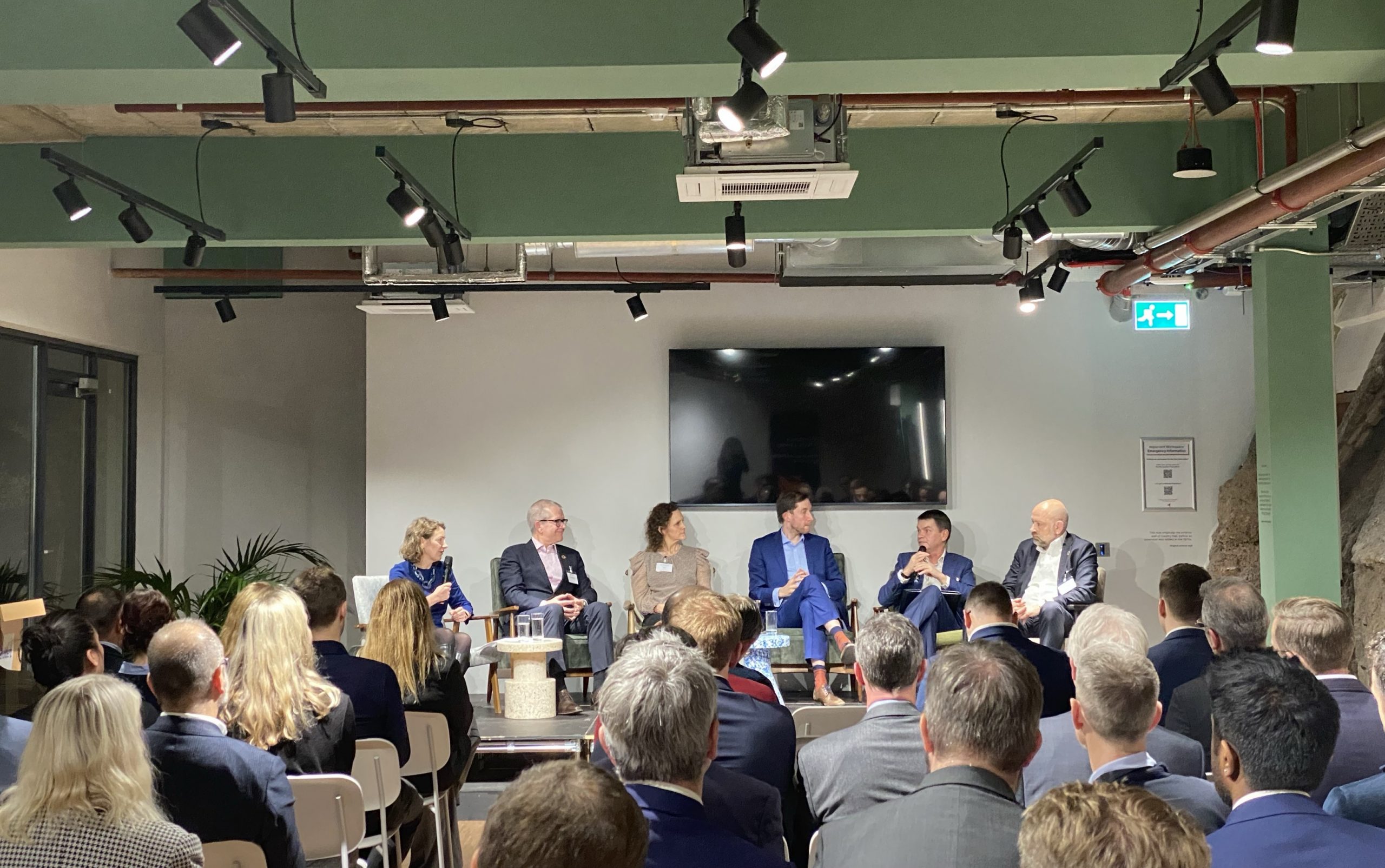[London, 12th March 2024] – Last week, European diplomats visited carbon capture business in the north of England to witness the roll out of the vital technology across the UK’s industrial regions and explore how the rollout of the UK Carbon Capture, Utilisation and Storage (CCUS) industry can support the UK and EU’s journey to net zero and boost economic investment into the UK.
Officials from the EU Delegation to the UK and nine EU Member States spent two days carrying out fact-finding visits in the Humberside and Teesside clusters, supported by the Carbon Capture and Storage Association, (CCSA.)
On March 7, the group viewed the Humber Freeports, including visits to the Phillips 66 Immingham Refinery, and the CATCH Skills Training Facility, where they met with partners of Viking CCS, one of the UK’s ‘CCUS Clusters’. On March 8, the delegation met innovative, Leeds based Carbon capture technology developer, C-Capture, before travelling to see the Teesworks Skills Academy and meet members of the East Coast Cluster, including BP, the Northern Endurance Partnership and Net Zero Teesside Power.
A networking event was held in Leeds to facilitate discussions between the delegation, CCSA members and UK CCUS industry partners and government representatives. The visit emphasised the importance of collaboration in advancing CCUS technology innovation.
Deployment of CCUS technology is vital for meeting the UK’s Net Zero targets. It will enable energy intensive industries making products such as cement and glass to continue manufacturing in the UK while still cutting emissions. As a result, CCUS technology is expected to generate 70,000 new skilled jobs and protect 77,000 existing jobs.
CCSA analysis suggests UK CCUS companies could attract up to £30 billion in private sector investment by 2030 if the Government puts in place the right support now. This will ensure the industry becomes self-sustaining while helping to meet government targets of capturing 20-30 million tonnes of CO2 by 2030.
Olivia Powis, UK Director at the CCSA, said:
“This visit highlights the positive progress in driving policy development and facilitating the deployment of CCUS technologies both in the UK and across the EU.
“We were pleased to support the European delegation’s visit and give them the opportunity to see Viking CCS and the East Coast Cluster as well as an overview of the significant progress being made in the UK’s industrial regions towards achieving net zero ambitions through CCUS technology. By fostering dialogue and collaboration with our European partners, we are helping to secure a sustainable and low-carbon future while safeguarding critical industries in the UK and across the EU.”
The members of the European Delegation said: ”During this insightful two-day visit, we have witnessed the progresses of two UK clusters committed to decarbonise crucial industrial sectors of the UK economy that account for a significant portion of UK emissions. We have observed the determination with which these stakeholders are working in achieving these objectives and helping UK in its journey toward net zero.”
The European delegation included members of the EU Delegation to the UK, of the Embassies of Poland, Hungary, Slovenia, Croatia, Latvia, Germany and France, and of Advantage Austria.
Notes to Editors
CCUS, or Carbon Capture, Utilisation and Storage, is a key low carbon solution – vital to meeting the UK’s statutory Net Zero target at least cost. CCUS enables the production of clean power, clean products (such as steel and cement) and clean hydrogen – which can then be used to decarbonise heating and transport. In addition, CCUS also enables greenhouse gas removal from the atmosphere through Direct Air Capture with Storage (DACS) or Bioenergy with CCS (BECCS).
The Carbon Capture Storage Association (CCSA) is the lead European association accelerating the commercial deployment of CCUS. We work with members, governments and other organisations to ensure CCUS is developed and deployed at the pace and scale necessary to meet net zero goals and deliver sustainable growth across regions and nations.
The CCSA currently has over 100 member companies who are active in exploring and developing different applications of carbon capture, CO2 transportation by pipeline and ship, utilisation, geological storage, and other permanent storage solutions, as well as members from management, legal and financial consulting sectors.
For media enquiries please email press@ccsassociation.org
To find out more about the CCSA please visit the CCSA website at http://www.ccsassociation.org/
